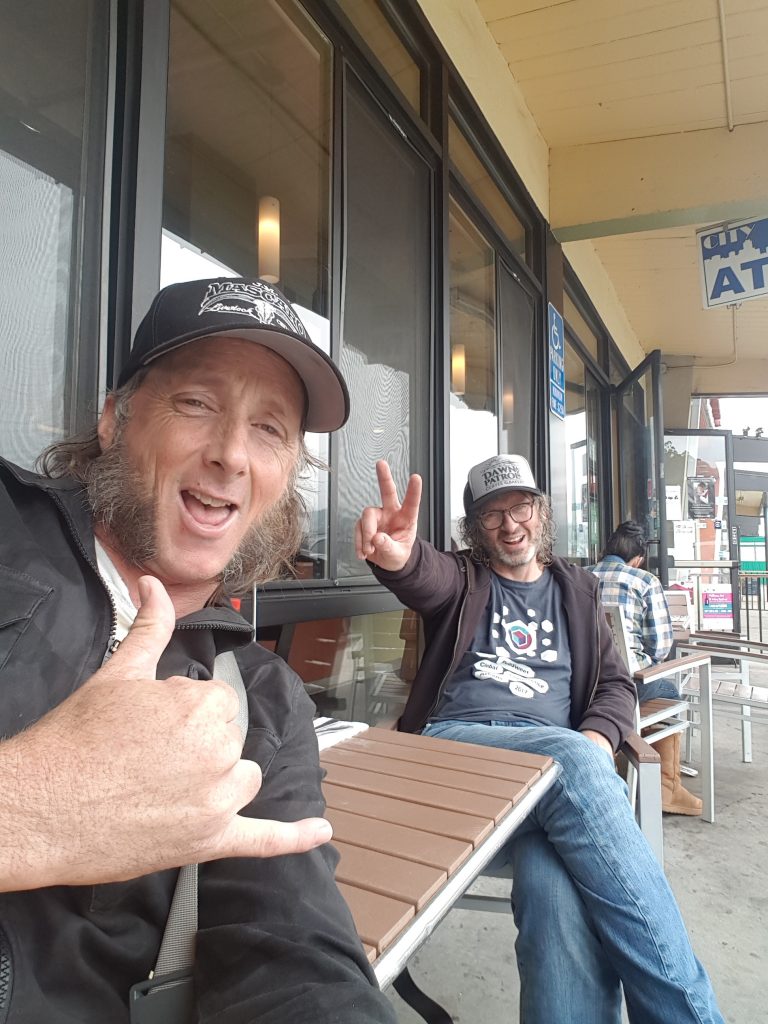Bulk upload of MS Word files into Editoria. It takes the selected files, puts them in the right sections in the book and in the right order (at this moment this is determined by filename), converts each to HTML and populates the book with this content…all automagic! (thanks to Alex Theg for making the vid).
Want some genius help with early hardware prototyping?
A good buddy of mine does some pretty amazing mechanical and electrical engineering prototyping and development. You can check him out here – http://fabrikor.eu/
Highly recommended if you are looking for someone to do this kind of work. (Musti, the founder, is a fellow Shuttleworth Fellow).
Typical Journal workflow
Putting together some slides to talk about xpub-collabra. Part of it is also highlighting what a typical workflow for a journal is. You can see all my slides here : http://slides.com/eset
The specific slides I am working on now are these:
The difference isn’t there
The path for a manuscript from submission to publication is very similar for most publishers. The process comes down to a common path that looks something like this:
submission -> review -> reject / assign editors -> [*] assign reviewers -> review -> accept / revise (return to [*]) / reject -> production -> publish
That’s about it. There is not much difference between publishers from a bird’s eye point of view.
The difference between each publisher’s workflow comes down to:
- how they divvy up the work between people
- cultural oddities
The first issue, divvying up work, is pretty interesting because you might expect a typical role, such as Handling Editor to be the same from one journal to another. But… that’s not the case. Who does what is very organisationally specific regardless of the titles of the actors. It’s not so much that the total work done is very different, rather the scope of each role varies wildly from one journal to another. The scope of each role is most often determined by cumulative legacy workflow decisions and technology choices over many years. For example, each Journal uses an assortment of tools, from google docs to wikis, to augment their manuscript submission system. So the scope of all the current roles is directly affected by this. Consequently, if you design a new system which prescriptively maintains the current scope of actions of a role, then you are hardcoding the mistakes of the past and not enabling the roles to optimise over time. In my opinion, it’s imperative to build systems where the scope of roles can be easily changed. This will allow new ways of working to evolve and the chaff can drop off as the staff realise it is no longer needed.
The second item, cultural oddities, is also interesting. Each journal has some part of their workflow that is peculiar to them. At a certain point actor x has to do something. It is generally not a huge deviation from a common path, but it exists and is significant. A senior academic, for example, may need to bless and article before it is finally published. Or the Handling Editors need to discuss an issue on a paper before they advance it to the next stage. It could be a one of a number of things. The point is, if you are designing a new system, it is easy to see these oddities as complexities to the workfow and it can be difficult to work out what the workflow actually is. It can seem enormously complex. However, the reality is that these are small deviations from a generic common path (as described above). If you can see this, then you can see the simplicity of the process and it is far easier to see these oddities as a kind of exception that needs to be accounted for rather than a major deviation in the path of the document. It makes designing systems a lot easier.
Wax
At Coko we are currently pulling the Wax Editor apart to componentise it. This will make extending and customising it a whole lot easier. To follow the project see the repository here : https://gitlab.coko.foundation/editoria/wax-pubsweet
Some new Mocks for xpub
Some new mocks for the xpub-Collabra journal platform. Built on top of PubSweet. Latest design brief here. All open source software.
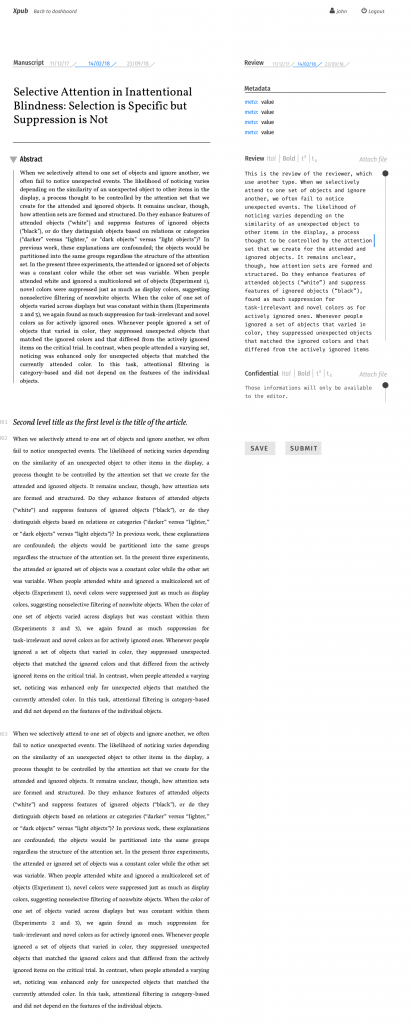
You can install xpub-collabra from here: https://gitlab.coko.foundation/xpub/xpub
Requires a basic understanding of NodeJS installation (see the Readme).
Traveling man
Back to traveling it seems…
It looks like my work schedule for late Sept + Oct & early Nov looks something like this:
Sept 19 – 24 : Hawaii (travel confirmed)
Sept 24 – 28 : NYC and Ithaca (travel confirmed)
Sep 30 – Oct 11 : NZ (travel confirmed)
Oct 11 – 13 : Los Angeles (travel confirmed)
Oct 14 – 21 : India (travel confirmed)
Oct 22 – 25 : Berlin (travel confirmed)
Oct 26 – 27 : Ljubljana (travel confirmed)
Oct 27 – Nov 5 : Portugal (travel confirmed)
Nov 5 – 8 : UK (travel confirmed)
Nov 8 – 12 : Athens (travel confirmed)
Nov 13 – 16 : Singapore (travel confirmed)
Nov 16 : SF (travel confirmed)
Very rough dates. Still working it out.
yeah…
My new love! Just got it this morning. Beautiful. I never knew I could feel such this way about a board 🙂

Jitsi vid quality
We are trying out Jitsi as an open source conferencing app to replace various proprietary (ugh) conferencing softwares we have used. It has always felt to me to be a bit of a last frontier… happily, though, initial tests are awesome. Video and audio quality is way better than, for example, Google Hangouts. Below are screenshots from a 6-way call this morning between San Francisco, France, the UK, Kenya (via Android App), and Athens (x2). Quality looks great!
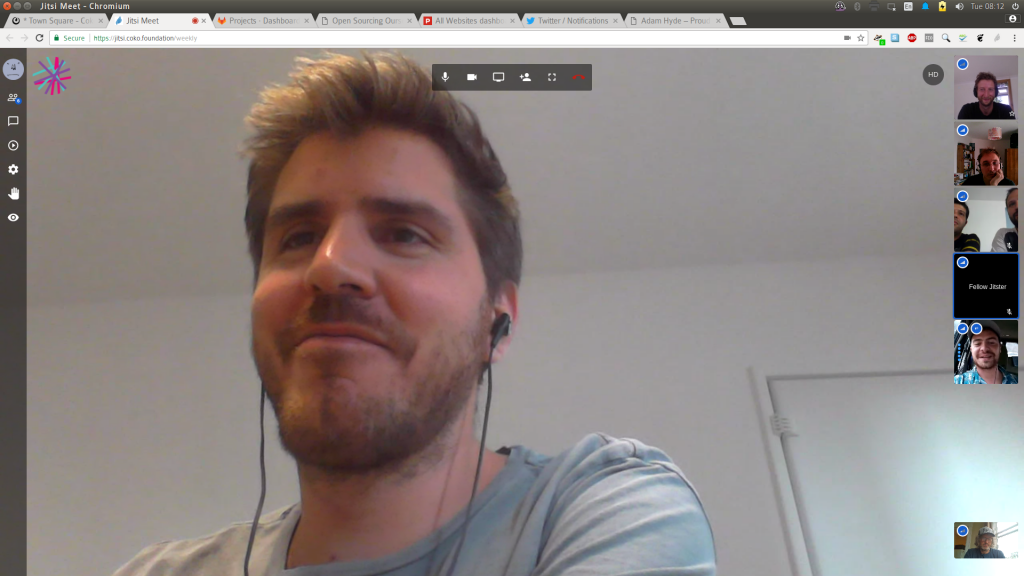
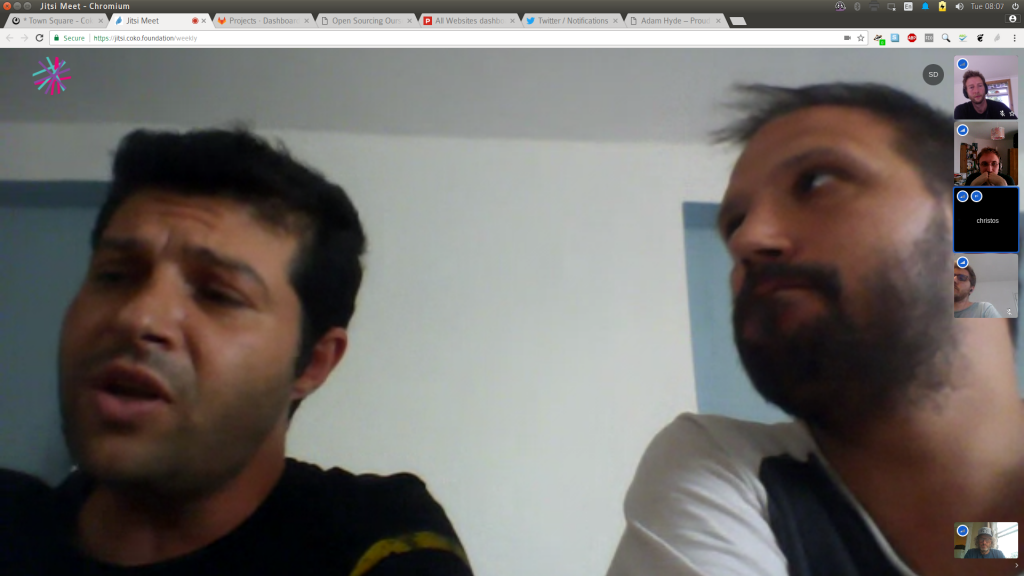
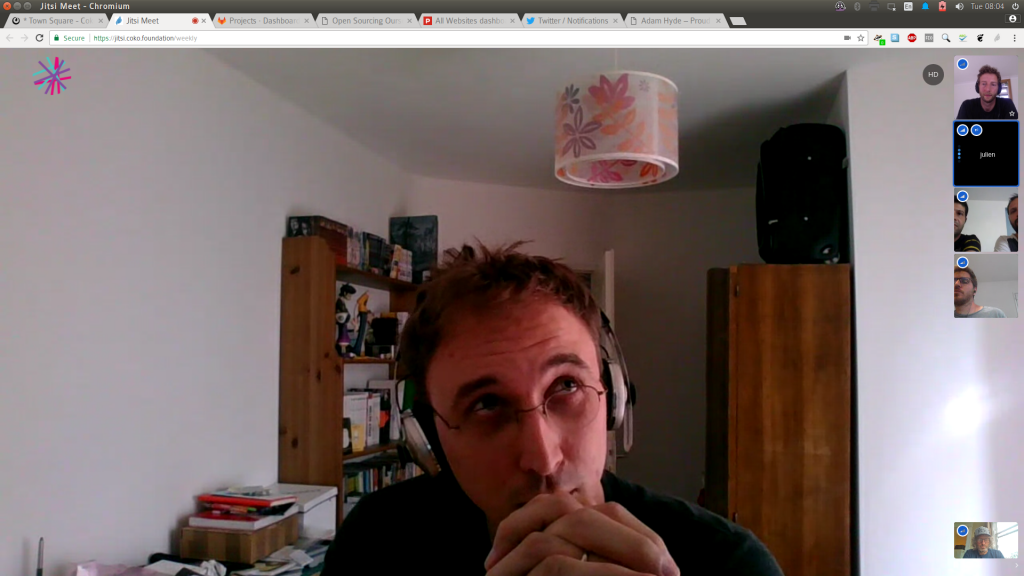
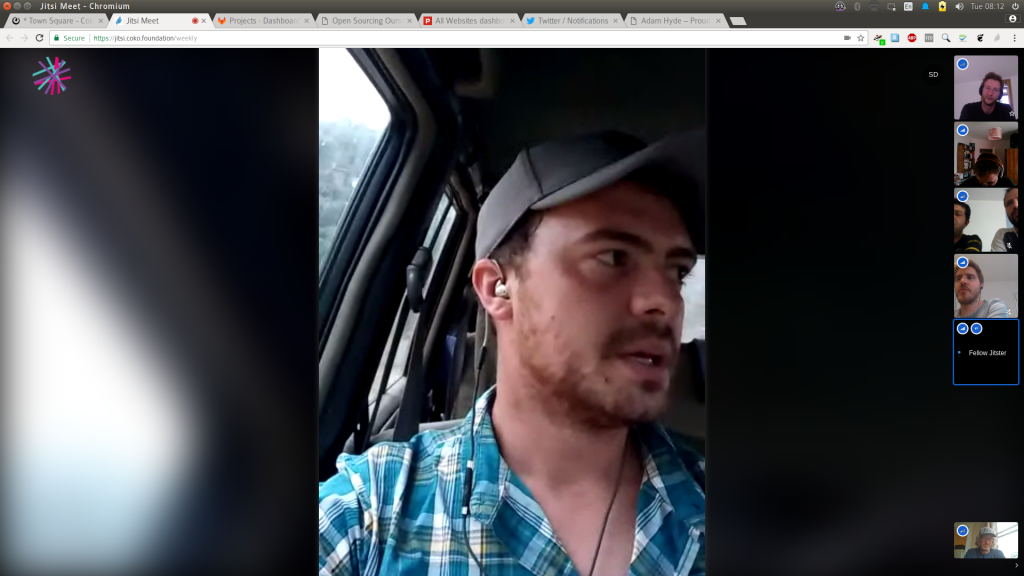
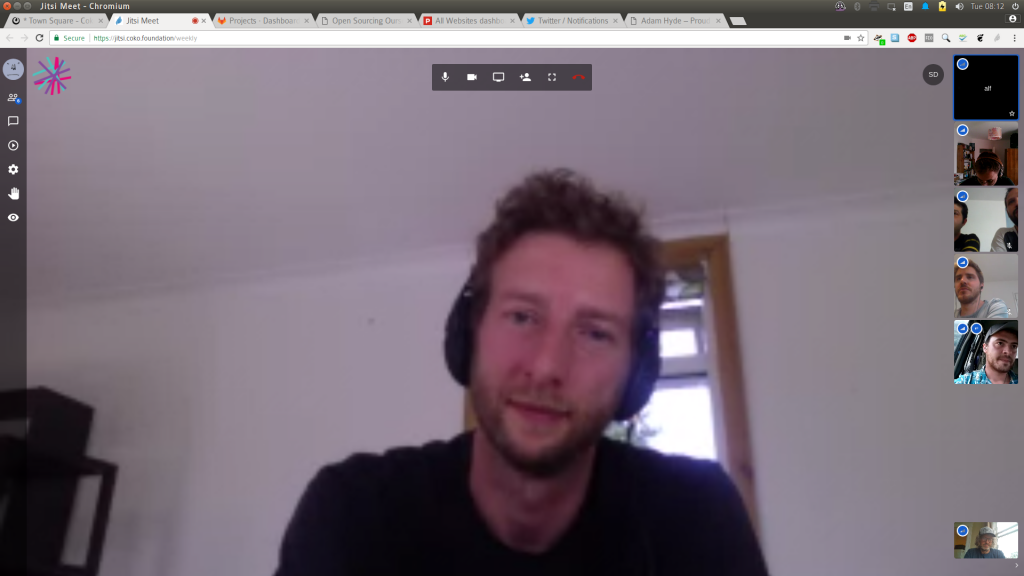
Surfn
My buddy from NZ, Pete, dropped in on his way home to Auckland after buying parts for his car in the US. Took him surfing 🙂
